Principal Investigators
Gravida’s Principal Investigators are as follows:
-
Professor Phil Baker

Director – Gravida
BMedSci, BM, BS, DM, FRCOG, FMedSci
Professor Phil Baker is an obstetrician scientist with a particular interest in the pregnancy complications preeclampsia and intrauterine growth restriction. These conditions are studied at a molecular, cellular, blood vessel and whole body level with each project interacting with and strengthening other projects.
Major ongoing efforts include the use of murine models to identify novel potential therapies for preeclampsia and intrauterine growth restriction, and the application of metabolomic technologies for patient benefits, particularly to develop screening tests for major pregnancy complications.
Other research interests have included: vascular adaptation to pregnancy, placental cell invasion, placental cell turnover, endothelial progenitor cells (EPCs), adverse pregnancy outcome in teenage pregnancies, fetal origins of adult disease (such as schizophrenia) and the effect of maternal stress on pregnancy outcome, and MRI imaging in pregnancy.
After training in Nottingham, Cambridge and Pittsburgh, Phil was appointed Professor of Obstetrics and Gynaecology at the University of Nottingham. There, he established a critical mass of researchers; the group was notable for having more abstracts accepted at the Society of Gynecologic Investigation than any other centre.
In addition to being the new Director of Gravida, Phil is also the Scientific Director of the International Pregnancy Research Alliance (IPRA). Previous posts include leadership of two medical schools and a successful Manchester (UK) application for a National Institute of Health Research Biomedical Research Centre (he was the inaugural director). He has been awarded grants totaling more than $40M for his own research portfolio; the majority of these grants relate to the study of the pathogenesis of pre-eclampsia and fetal growth restriction.
Phil is currently co-PI of an MRC (UK) programme grant and an EU FP7 programme grant. He has also led institutional research applications that have successfully accrued over $100M; several of these applications represent cross-institutional and cross-faculty interdisciplinary initiatives.
Phil’s ability to manage research is illustrated by over 300 scientific publications; more than 100 of these are with international co-authors. He holds visiting Professorships in Canada, China and the UK.
-
Ms Jacquie Bay
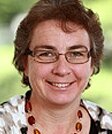
LENScience, Liggins Institute, , Auckland
BSc, MEd(Hons), Dip Tchg
Jacquie’s research focuses on the role of student-led research in science education, the use of ICT and the issues faced by secondary biology educators and the potential positive impact of effective interaction between the secondary and tertiary science sectors.
A more extensive biography is available on the Liggins Institute website.
Current projects:
-
Professor Hugh Blair
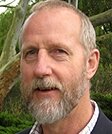
Institute of Vet, Animal and Biomedical Sciences, Massey University, Palmerston North
BAgrSc(Hons), PhD
Hugh’s research interests are in animal genetics and epigenetics, and the inheritance of disease. Hugh is currently Deputy Head and Director of Research and Commercialisation for the Institute of Veterinary, Animal and Biomedical Sciences at Massey University. He holds several industry consulting positions. Hugh leads a Gravida Major Project investigating the effects of fetal programming on later life productivity in sheep and cattle.
A list of Hugh's publications can be found on his Massey University webpage.
Current projects:
-
Professor Frank Bloomfield
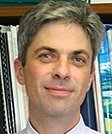
Liggins Institute, University of Auckland, Auckland
BSc(Hons), MBChB, MRCP(UK), FRACP, PhD
Frank is a neonatal paediatrician whose research interests focus on fetal and neonatal nutrition and growth, including long-term consequences of altered growth trajectories, fetal development in twins, development of the fetal hypothalamic-pituitary-adrenal axis and consequences of perinatal care. He carries out his clinical duties in the newborn nursery at National Women's Hospital and is leader of the fetal and neonatal physiology research group at the Liggins Institute. He also has an appointment in the Department of Paediatrics, . Frank leads two Gravida Major Projects, the first investigating the relationship between high protein diet in extremely low birthweight babies and the later life risk of diabetes and obesity; while the second looks to identify the triggers for the growth differences between single births and twins.
A more extensive biography can be found on the Liggins Institute website.
Current projects:
-
Professor Bernhard Breier
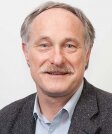
Institute of Food, Nutrition and Human Health, Massey University, Albany, Auckland
MSc, PhD
Bernhard is a Professor of Human Nutrition with an interest in clinical as well as basic research advancing core knowledge of life-cycle nutrition and public health nutrition. His research programmes bring together nutrition, metabolism and endocrinology, combining basic and applied studies from the cellular level to major human intervention trials. Research themes include taste perception and appetite regulation, the obesity paradox and metabolic flexibility, socio-cultural contexts of food and body size, and pathways to healthy cognitive ageing.
A more extensive biography is available on the .
Current projects:
-
Professor Vicky Cameron
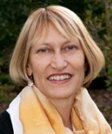
Christchurch Heart Institute, University of Otago, Christchurch
BSc(Hon), PhD
Vicky’s research interest is the interplay of genes and environment on the risk of heart disease for families/whanau, Vicky is a Research Professor and head of Molecular Biology in the Christchurch Heart Institute at the University of Otago, Christchurch. She is lead investigator on several cohort studies, including the Hauora Manawa/ Community Heart Study, The Healthy Volunteers Cohort, and the Christchurch Family Heart Study.
She has worked overseas at the Hammersmith Hospital, London, and at the Salk Institute, La Jolla, as a Postdoctoral Fellow. She served on the Heart Foundation of NZ’s Scientific Advisory Board for 7 years, and is currently an Academic Staff representative on the Otago University Council.
-
Professor David Cameron-Smith

Chair in Nutrition and Research Director, Liggins Institute, , Auckland
David Cameron-Smith is a nutritional biochemist with an interest in molecular responses to food and exercise. Moving to the Liggins Institute from Australia in 2012, his work has focused on understanding how nutrition regulates genes and the biochemical pathways that are essential for optimal human health.
David’s research is largely directed towards understanding: the importance of nutrition in the maintenance of optimal health in an ageing population and the impact of nutrition in regulating the function of muscles to promote muscle growth and minimise fat gain.
A more extensive biography is available on the Liggins Institute website.
-
Associate Professor Larry Chamley

School of Medicine, , Auckland
Larry is a reproductive biologist in the Department of Obstetrics and Gynaecology, at where he heads a research group studying the biology and immunology of reproduction. He has long-standing interests in the interactions between the placenta and maternal physiological systems, especially the immune and vascular systems. His team investigates normal placental development and how poor placentation leads to diseases of pregnancy, such as preeclampsia, intrauterine fetal growth restriction, recurrent miscarriage and infertility.
Larry is a member of the Executive Councils of the Australia and Placental Research Association, the Society for Reproductive Biology, and the International Federation of Placenta Associations. He is a member of the editorial boards of the journals Trophoblast Research/Placenta and the Journal of Reproductive Immunology.
A list of Larry's publications can be found on the University of Auckland website.
-
Professor Caroline Crowther
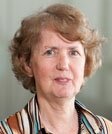
Liggins Institute, , Auckland
Caroline is the Professor of Maternal and Perinatal Health at The Liggins Institute, University of Auckland. As a Maternal Fetal Medicine Subspecialist, her research focuses on improving outcomes following preterm birth, multiple pregnancy, hypertensive disease, birth after caesarean, obesity in pregnancy and gestational diabetes. Caroline holds a joint appointment as Clinical Director of ARCH; the Australian Research Centre for Health of Women and Babies, in the Robinson Institute at the University of Adelaide. She is an editor for the Cochrane Pregnancy and Childbirth Collaborative Review Group, Chair of the WOMBAT (Women and Babies Action Through Trails) collaborative network and a committee member for the IMPACT (Interdisciplinary Maternal Perinatal Australasian Clinical Trials) Network.
-
Professor Wayne Cutfield

Liggins Institute, , Auckland
BHB, MB ChB, DCH, MD, FRACP
Wayne is a paediatric endocrinologist and an expert on insulin sensitivity and action in children. He is Director of the Liggins Institute and Director of the Maurice and Agnes Paykel Clinical Research Unit within the Liggins Institute where he leads clinical research investigating how environmental influences early in life affect childhood growth and development. Wayne has a Gravida-funded Major Project which focuses on the growth and metabolism of children born through assisted reproduction or to older mothers.
A more extensive biography is available on the Liggins Institute website.
-
Associate Professor Peter Dearden

Laboratory for Evolution and Development, University of Otago, Dunedin
BSc, BSc (Hons), PhD, DIC
Peter is an evolutionary geneticist whose research interests are in evolution and development, with a particular focus on how morphology evolves at the molecular level, the molecular mechanisms of developmental plasticity and in identifying ancient and conserved developmental programmes. He established the Laboratory for Evolution and Development at the University of Otago, is the Scientific Director of Genetics Otago, and in 2009 was appointed to the Scientific Advisory Board of the Science Media Centre. He leads a Gravida Major Project investigating the phenomenon of developmental plasticity in invertebrate model organisms.
A more extensive biography can be found on the University of Otago website.
Current projects:
-
Professor Mike Dragunow
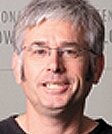
Faculty of Medical and Health Sciences, , Auckland
Mike’s research interests include the investigation of human neurodegenerative disorders such as Alzheimer’s disease, stroke, Parkinson’s disease, motoneuron disease, epilepsy and Huntington’s disease.
A more extensive biography is available on the University of Auckland website.
Current projects:
-
Professor Grant Edwards
Lincoln University, Lincoln, Canterbury
-
Professor Elwyn Firth
Dept of Science, Sports and Exercise Science, , Auckland
Current projects:
-
Professor Neil Gemmell
Department of Anatomy, University of Otago, Dunedin
BSc(Hons), PhD
Neil leads a research group that blends ecology, population, conservation and evolutionary biology with recent technological spin-offs from the various genome projects.
A recurring theme in his research is that of reproduction, with past and current projects spanning mating systems and mate choice, sperm function, sex determination, sex allocation, and inter-sexual genomic conflict. Neil also has interests in several congruent fields of research, particularly the evolution of the mitochondrial genome, the evolution of microsatellite DNA, the evolution of sex determining mechanisms and the processes that lead to speciation.
Additional biography information can be found on the University of Otago website.
-
Distinguished Professor Sir Peter Gluckman

Liggins Institute, , Auckland
KNZM, MBChB, MMedSc, DSc, FRACP, FRCPCH, FRSNZ, FMedSci, FRS
Sir Peter's research encompasses paediatric endocrinology, the developmental origins of health and disease, the evolutionary-developmental biology interface, and evolutionary medicine.
A more extensive biography is available on the Liggins Institute website.
Current projects:
Developmental and evolutionary medicine, conceptual and empirical perspectives
-
Professor Dave Grattan
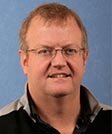
Otago Centre for Neuroendocrinology, University of Otago, Dunedin
BSc.(Hons), PhD
Dave is a neuroendocrinologist with a particular interest in the anterior pituitary hormone prolactin, and how this hormone acts in the brain during pregnancy to play a critical role in coordinating the adaptations in the maternal brain. These adaptations include increased appetite and changes in metabolic process, changes in glucose homeostasis, mood and behavioural changes. If these adaptations do not occur properly, a range of complications can occur, including gestational diabetes, preterm labour, and postpartum depression. Such adverse events can have serious consequences on the baby, changing brain development and increasing life-long risk of many diseases, including obesity, diabetes and mental illness. Dave's research program (Funded by the HRC and Marsden) evaluates how prolactin helps the maternal brain adapt to pregnancy, and the consequences for the mother and baby when adaptive responses are compromised.
In addition to his research role, Dave is the current Head of the Department of Anatomy at the University of Otago, and since 2009, has served as the Editor-in-Chief of the Journal of Neuroendocrinology (a leading international journal in the field).
For more information, see the University of Otago's Centre for Neuroendocrinology website.
-
Professor Alistair Gunn
Dept of Physiology, , Auckland
-
Professor Mark Hampton

Free Radical Research Group, Department of Pathology, University of Otago, Christchurch
BSc, MSc(Hons), PhD
Mark’s work involves the investigation of the role of oxidative stress in regulating epigenetic processes.
A more extensive biography is available on the University of Otago website.
Current projects:
Oxidative stress and the regulation of embryonic development
-
Distinguished Professor Jane Harding

Liggins Institute, , Auckland
ONZM, B.Sc., M.B.Ch.B., D.Phil., FRACP, FRSNZ
Jane trained in fetal physiology, then specialised in paediatrics and neonatology. Jane was appointed to the faculty of in 1989 after returning to . She was appointed Professor of Neonatology in 1997 and, until 2007, spent part of each year working at Auckland National Women's Hospital's newborn intensive care nursery. Jane is a member of the LiFePATH (Liggins Fetal, Perinatal and Maternal Translational Research for Lifelong Health) group at the Liggins Institute and conducts both clinical and experimental research on the management of small babies before and after birth, and its long term effects.
Jane is an international authority on the regulation of fetal growth, placental function, and the treatment and consequences of undernutrition in the womb. Jane has served on a range of national and international bodies including those of the Health Research Council of , National Health and Medical Research Council of Australia, Royal Australasian College of Physicians, and the Council of the International Society for the Developmental Origins of Health and Disease.
Jane is also the Deputy Vice-Chancellor (Research) of .
-
Professor Allan Herbison

Department of Physiology, University of Otago, Dunedin
BMedSc, MBChB, PhD, FRSNZ
Allan is a medically-qualified biomedical research scientist with extensive interests in the brain control of fertility. He is Director of the Centre for Neuroendocrinology and Professor of Physiology at the University of Otago, Dunedin, . Allan leads a research group that specializes in the use and development of mouse models to understand the hypothalamic circuitry controlling puberty onset, fertility and the gonadotropin-releasing hormone neurons.
A biography including Allan's publications can be found on the University of Otago website.
-
Professor Paul Hofman
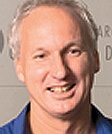
Liggins Institute, , Auckland
MBChB, FRACP
Paul is a paediatric endocrinologist investigating the metabolic effects on low birth weight, prematurity, IVF, and twins births on the later development of diabetes, growth-related issues and obesity.
A more extensive biography is available on the Liggins Institute website.
Current projects:
-
Professor Paul Kenyon
Institute of Vet, Animal and Biomedical Sciences, Massey University, Palmerston North
BAgSc, MAplSc, PhD
Paul is a Professor of Animal Husbandry with a wide research interest that is broadly focused on improving the productivity of pastoral-based sheep farms.
Specific programs include: maximising ewe lamb (hogget) breeding, triplet lamb survival and growth, reducing dystocia in heifers, alternative feed types to improve lamb growth rates, mid-pregnancy shearing, and potential long term intra- and inter-generational effects of dam nutrition, pregnancy rank, parity and size.
A more extensive biography can be found on the Massey University website.
-
Professor Lesley McCowan

Department of Obstetrics and Gynaecology, , Auckland
ONZM, MBChB, FRANZCOG, MD, CMFM
Lesley is a Professor and Head of the Academic Department of Obstetrics and Gynaecology at . She is a sub-specialist in maternal-fetal medicine and her main clinical interest is in management of high risk pregnancies especially those with fetal growth restriction and pre-eclampsia. She has chaired the perinatal mortality review process at National Women’s Hospital for many years and was a founding member of the national Perinatal & Maternal Mortality Review Committee (PMMRC) which reviews deaths of babies and mothers nationally.
Lesley is actively involved in medical research which aims to improve the health outcomes for mothers and babies. She is the Auckland principal investigator on the international SCOPE (Screening for Pregnancy Endpoints) study which aims to identify women early in their first pregnancy who will go on to develop pre-eclampsia, preterm birth or have a growth restricted baby. The overarching goal of SCOPE is to develop reliable early pregnancy predictive tests for these serious pregnancy complications, as preventative treatments are available which can reduce the risk in high risk women. The SCOPE study has a very high quality early pregnancy bio bank which is being used for prediction of these late pregnancy complications.
Another key research project aims to identify modifiable risk factors for stillbirth in late pregnancy. She is leading a multicentre case control study, funded by Health Research Council and CureKids. Her research team is particularly interested in the role of the mother’s sleep and whether this influences stillbirth risk. Lesley’s other current major research interest is the influence of the mother being overweight on the risk of complications for mother and child. She hopes to develop an intervention study aimed at reducing the risk of gestational diabetes and excessive pregnancy weight gain in overweight mothers.
-
Dr Chris McMahon

Growth and Lactation Team, Agresearch Ltd, Hamilton
BSc(Hon), PhD
Chris is a growth physiologist with an interest in factors that regulate the development of skeletal muscle and the demise of skeletal muscle mass and function during ageing and disease. He leads the Growth and Lactation team who focus on the development and composition of skeletal muscles in sheep and cattle, the lactation performance of cows and antler development in deer for the pastoral industries of . His current research focuses on the role of growth hormone, IGF-1 and myostatin in regulating post-natal growth, the genesis of sexually dimorphic growth and the effect of exercise on ageing of skeletal muscles.
-
Professor Ed Mitchell

Faculty of Medical and Health Science, , Auckland
FRSNZ, FRACP, FRCPCH, DSc
Ed is a paediatrician. He qualified at St George’s Hospital Medical School in London and has worked in the UK, Zambia and .
From 2001 he has been the Cure Kids Professor of Child Health Research at . He has published over 350 original papers, particularly on the epidemiology of asthma and sudden infant death syndrome (SIDS). In 1996 the University of London awarded a Doctor of Science for his work on The Epidemiology and Prevention of SIDS. He has received several awards for his landmark studies of SIDS. In 2009 he was made a Fellow of the Royal Society of .
His other research interests examine how early-life environment influences outcomes throughout life. Three research studies which he leads are particularly relevant to this goal:
- The Auckland Birthweight Collaborative (ABC) Study
- The Children of SCOPE
- Probiotics in pregnancy studies.
These studies have been funded by HRC and Cure Kids.
-
Professor Ian Morison

Department of Pathology, University of Otago, Dunedin
BMedSc, MBChB, PhD, FRCPA (Haem)
Ian is a research haematologist, with a research focuses on the effect of the environment on epigenetic programming during development. These include the epigenetic effects of in vitro fertilisation, epigenetics of the placenta, and the effects of nutrients on adult methylation.
A more extensive biography is available on the University of Otago website.
Current projects:
-
Associate Professor Susan Morton

Faculty of Medical and Health Science, , Auckland
BSc(Hons), BHB, MBChB, PhD, FAFPHM
Susan is an epidemiologist and specialist in public health medicine with a general interest in life-course epidemiology, particularly as it pertains to reproductive outcomes, growth throughout the life-course, and women’s adult health.
A more extensive biography is available on the University of Auckland website.
Current projects:
-
Mr Tony Pleasants

AgResearch, Ruakura Research Centre, Hamilton
DipSci, MAgrSci
Tony’s interests are in developing and applying advanced modelling such as probability and dynamical approaches to complex biological systems. He sees mammalian growth as the outcome of a complex system operating at the level of the organism, cell and subcellular compartments with energy flows being the major driver. Genes in such systems represent non-linear interactive objects. Tony’s interests are in applying integrative systems modelling to biological processes such as growth, research that is not just theoretical but has the potential to inform the design of empirical investigative work by identifying key questions.
Current projects:
-
Professor David Raubenheimer
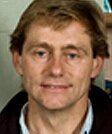
Institute of Natural Sciences, Massey University, Albany, Auckland
DPhil (Oxon)
David’s research is in comparative nutritional ecology.
Current projects:
-
Adjunct Associate Professor Nicole Roy
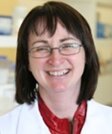
Food Nutrition & Health Team, AgResearch Grasslands, Palmerston North
BScA, MSc, PhD
Nicole completed her PhD studies in 1997 at Laval University (Quėbec, Canada) followed by two years of postdoctoral study at the Rowett Research Institute in Aberdeen (Scotland). Both her PhD and postdoctoral studies focused on how nutrition and food components can modify inter-organ nutrient partitioning and communication using tracer kinetics, animal models (pigs and sheep) and in vitro models. Nicole was appointed to AgResearch in 1998.
Nicole’s research focuses on the role of nutrients in maintaining and restoring intestinal health using animal and cellular models of human metabolism and combines a range of physiological and “omics” techniques. Nicole leads the Food Nutrition & Health team at AgResearch, which has 20 science staff and 10 PhD students. Her experience includes large research collaborations funded by the government in the food and health space. Nicole is also an Adjunct Senior Lecturer and Associate Investigator at the Riddet Institute and supervises 8 PhD students as part of this role.
Nicole is also the International Knowledge-Based Bioeconomy (KBBE) Food & Health Theme Leader for , coordinating activities with the EU, Canada and Australia in the Food & Health space.
-
Professor Elaine Rush
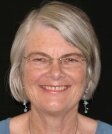
Auckland University of Technology, Auckland
MSc(Hon), PhD
Elaine is Professor of Nutrition at AUT University and has been involved in health and education for all her career. She has research expertise in the measurement of body composition, energy expenditure, physical activity, nutrition and risk factors for disease. Elaine has a particular interest in ethnic differences particularly among Maori, Pacific Island, European and Indian populations in and her research has led to over 100 peer reviewed publications.
Elaine serves on the Councils of a number of nutrition and obesity organisations and is the representative for IASO. Her research projects include Project Energize in the Waikato, the health and growth of children whose mothers’ had gestational diabetes and the longitudinal Pacific Island Family study which is tracking over 1000 Pacific children from birth. Elaine supervises fourteen masters’ and doctoral students in the areas of nutrition, metabolism, body composition and energy expenditure throughout the lifecycle.
A more extensive biography is available on the AUT website.
-
Professor Ian C. Shaw

Department of Chemistry, University of Canterbury, Christchurch
BSc(Hons), PhD, FIFST, FIBiol, FNZIC, FRSC
Ian is a toxicologist with a research focus on food as a vector for chemical exposures and the implications of such exposures for growth and development. He is particularly interested in the growth and developmental effects of food borne chemicals that mimic biomolecules via receptor-mediated mechanisms; for example, molecules that resemble the female hormone, 17β-estradiol, such as genistein in soy or bisphenol A the polycarbonate plastics monomer. More recently, he has become interested in gene regulation by molecular mimics of intermediates in the testosterone synthesis pathway (e.g. the plasticiser and acaricide, dibutylphthalate) and the effects of these molecules on the developing fetus.
Formerly a member of the Food Safety Advisory Board which advised ministers on food safety issues and policy; Ian is now a member of the Food Safety Authority’s Food Safety Academy.
In addition to Ian’s academic activities, he is very interested in communicating science to the general public. He is frequently interviewed in the media about issues of contamination and food safety, having published numerous books and articles on these topics. He also appears regularly on television in the series What’s really in our food?. Ian was awarded the Association of Scientists Science Communicators Award in 2009.
A more extensive biography can be found on the .
-
Professor Hamish Spencer
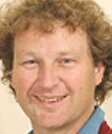
Department of Zoology, University of Otago, Dunedin
BSc(Hons), MSc (Dist), PhD, FRSNZ
Hamish’s research covers aspects of evolutionary biology from theoretical population genetics and phenotypic plasticity.
A more extensive biography is available on the University of Otago website.
Current projects:
-
Professor Peter Stone

, Auckland
MB ChB, Dip Obs, FRCOG, FRANZCOG, DM (Bristol) DDU CMFM
Peter is Professor of Maternal Fetal Medicine in and Senior Medical Officer in the Maternal Fetal Medicine team at National Women’s Health in Auckland City Hospital.
Peter's research interests include fetal welfare assessment, in particular, fetal and maternal physiology as part of studies in to the mechanisms of late stillbirth, intrapartum fetal monitoring, and early pregnancy development including implantation and trophoblast deportation.
He is a member of the Technical Advisory group for the National Screening Unit Antenatal and Newborn Screening Programme and has recently chaired the Health Workforce group , Mothers, Fathers and Babies Planning for the Future: A Service Forecast prepared for Health Workforce
Other research interests include teaching quality improvement. He has developed an ultrasound teaching programme in Obstetrics and Gynaecology which has been successfully used in and the Pacific.
-
Associate Professor Mark Vickers

Liggins Institute, , Auckland
BSc, COP, MSc(Hons), PhD
Mark is investigating fetal undernutrition with a particular focus on the insulin and the obesity hormone leptin in adult life, and has consequences as far reaching as reduced activity levels.
A more extensive biography is available on the Liggins Institute website.
Current projects:
-
Emeritus Professor Graeme Wake

Centre for Mathematics in Industry, Massey University, Albany, Auckland
BSc, MSc(Hons), PhD, DSc
Graeme C. Wake, Professor Emeritus of Industrial Mathematics and Centre for Mathematics in Industry, Massey University at Auckland is working on applying higher-level mathematics to problems of specific relevance to , particularly in modelling biological systems in the agricultural, health and industrial sectors. In collaboration with biologists and clinical oncologists, he has developed innovative models of tumour cell growth with applications to cancer therapy. He is part of the team using systems biology, especially the methodology of dynamical systems, in the area of developmental plasticity and epigenetics. He is a Fellow of the Royal Society of (elected 2004), the Institute for Mathematics and its Applications UK (elected 1977) and the NZ Mathematical Society (elected 1999). He was awarded the Marsden Medal of NZAS in 1999 and the ANZ Industrial and Applied Mathematics Research Medal in 2006.
His focus in Gravida is on bring mathematics to bear on fundamental medical problems with a view to providing underpinning rigour to these key areas. In many cases this has not been traversed previously.
A more extensive biography is available on the Massey University website.
-
Professor Christine Winterbourn
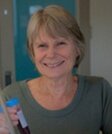
Centre for Free Radical Research, University of Otago, Christchurch
FRSNZ ONZM
Christine is the Director of the Centre for Free Radical Research, University of Otago, Christchurch.
Christine has published more than 250 scientific papers and is an internationally regarded researcher. She has received the NZ Association of Scientists’ Marsden Medal, Massey University 75th Anniversary Medal, Society for Free Radical Research (Australasia) Distinguished Service Award, University of Otago Distinguished Research Medal and Society for Free Radical Research (International) Trevor Slater Award. Christine was awarded the Rutherford Medal, NZ's highest science and technology honour, by the Royal Society of NZ in 2011.
Christine's research interests centre on the biological chemistry of free radicals and other reactive oxidants and their involvement in health and disease. Her focus is on understanding mechanisms of reactive oxidant production, the biochemistry of biological damage and the consequences for disease pathology.
-
Board
Ensures the direction and performance of Gravida in the context of the Annual Plan ...
-
Executive Team
Manages the operational and strategic aspects of Gravida ...
-
Scientific Advisory Board
Provides independent advice on the relevance and impact of the Centre's research ...
-
International College
Gravida has an ‘International College’ of global experts who provide leadership to ...
-
Administrative Staff
-
Associate Investigators
Funded or associated with Gravida through a number of major and pilot projects ...
-
Post-Doctoral Fellows
Funded or associated with Gravida through a number of major and pilot projects ...
-
Project Staff
Supported by a number of technicians and other non-investigators ...
-
Students